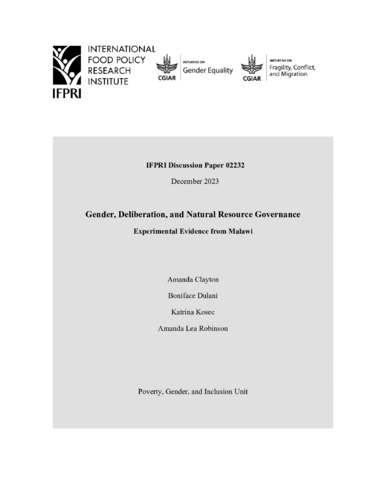Gender, deliberation, and natural resource governance: Experimental evidence from Malawi
Abstract
Initiatives to combat climate change often strive to include women’s voices, but there is limited evidence on how this feature influences program design or its benefits for women. We examine the causal effect of women’s representation in climate-related deliberations using the case of community-managed forests in rural Malawi. We run a lab-in-the-field experiment that randomly varies the gender composition of six-member groups asked to privately vote, deliberate, then privately vote again on their preferred policy to combat local over-harvesting. We find that any given woman has relatively more influence in group deliberations when women make up a larger share of the group. This result cannot be explained by changes in participants’ talk time. Rather, women’s presence changes the content of deliberations towards topics on which women tend to have greater expertise. Our work suggests that including women in decision-making can shift deliberative processes in ways that amplify women’s voices.

